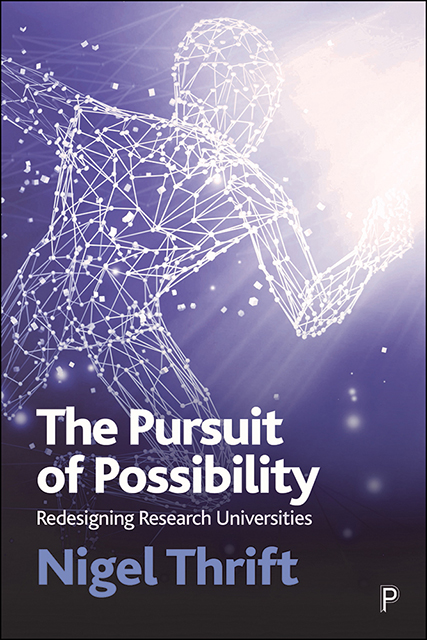4 - A New Robbins? Recent Changes in British Universities
Published online by Cambridge University Press: 21 June 2023
Summary
So, having got some sense of what research universities are about, it is now possible to survey what has happened to them, mainly over the last decade or so. That is what the next four chapters try to achieve by taking different perspectives on their recent history.
Research universities have changed and I doubt that many academics would argue that every one of the recent changes has been an unalloyed good. But this cannot be an argument against change per se. The research university as we know it now is only the latest in a long line of forms of university (Clark, 2009, Cole, 2009, Wolf, 2019), none of which were the land of Cockaigne that they have often been described as in retrospect by those commentators keen to show both a golden age and continuity of practice and values. Thus, in the UK the idea that universities should do research funded at scale by the state really only dates from the period after the Second World War although universities had certainly received some considerable state funding before that (British Academy, 2019). Again, the basic research apparatus of seminar, specialised journal paper and scholarly monograph, the doctorate and a structured career in research was, in the form that we would now recognise it, invented in the nineteenth and early twentieth centuries and it was not without its critics at the time (for example, see James (1918) decrying the diffusion of PhDs through the American university system). Even as late as 1869– 70, there were only seven resident graduate students in the whole of the US Ivy League. When I first started at university, having a PhD was not an absolute necessity – there were still quite a few ‘misters’ among academic staff complements.
The point is that there have been many other forms of university than what in many countries of the world has become the default position for many, passionately defended as if it is somehow the only way of going on. There is no necessary reason why supposed fundamentals like the lecture or the seminar or indeed academic qualifications cannot be reinvented without the whole of the academic enterprise crumbling – which is not to say that care doesn’t need to be taken in doing so.
- Type
- Chapter
- Information
- The Pursuit of PossibilityRedesigning Research Universities, pp. 103 - 122Publisher: Bristol University PressPrint publication year: 2022



